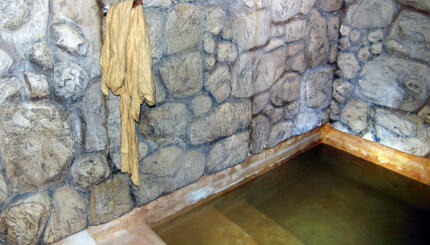Reprinted with permission from Ethics in the Market Place: A Jewish Perspective, published by The Library of Jewish Law, 2000, where extensive notes supplement the text presented here.
Misrepresentation Tops the Theft List
Jewish law takes a very strict approach to misrepresentation and fraud in commerce. In the Tosefta (Bava Kama 7:8) we read: “There are seven types of thief. First and foremost among them is one who misrepresents.”
Maimonides writes: “It is forbidden to deceive people in buying and selling or to deceive them by creating a false impression…. If one knows that an article he is selling has a defect, he must inform the buyer about it. It is forbidden to deceive people even by words.” (Mishneh Torah, Laws of Sale 18:1)
The prohibition applies even where the purchaser suffers no economic loss as a result of the misrepresentation.
With your help, My Jewish Learning can provide endless opportunities for learning, connection and discovery.
A number of prohibitions regarding commercial transactions have been established on the basis of the prohibition of misrepresentation:
Used Goods Should Look Used
Goods may not be dressed-up so as to mislead the customer to think they are better than they really are:
“One should not dress up… an animal or old vessels so that they appear new; but he may dress up new ones by polishing, ironing, or beautifying them all they require.” (Mishneh Torah, Laws of Sale 18:2)
It is permitted to remove waste from grain in order to make its appearance more pleasing, but it is forbidden to remove waste from the top and leave it at the bottom. (Mishneh Torah, Laws of Sale 18:4)
Deceptive Grade Mixtures Are Prohibited
It is forbidden to mix merchandise of higher quality with merchandise of lower quality and to sell the entire mixture as the former. If, however, the nature of the mixture is readily apparent, it is permitted, since there is no deception:
“If the taste of each of the wines can be distinguished, it is permissible to mix them anywhere, because everything which can be distinguished will be detected by the purchaser and it is therefore permissible.” (Mishneh Torah, Laws of Sale 18:5)
Even Giving False Impressions Is Wrong
It is forbidden to attribute to an article a quality it does not possess:
“One must not sell to a non-Jew meat of an animal not slaughtered according to ritual law under the impression that it is meat from an animal slaughtered according to ritual law, although to the non-Jew, the two are the same.” (Mishneh Torah, Laws of Sale 18:3)
Health Hazards Must Not Be Hidden
No product that is hazardous to health may be sold by concealing the hazard through false description. According to the Talmud:
“A man should not sell his neighbor shoes made of the hide of an animal that died, [representing them] as made of the hide of a living animal which was slaughtered; there are two reasons: first, because he is deceiving him, and secondly, because of the danger.” (Babylonian Talmud, Hullin 94a)
Rashi [the classic eleventh-century commentator on Bible and Talmud, from Northern France] explains:
“A shoe made of the hide of an animal that died without being slaughtered: the hide is not as strong as that of an animal that was slaughtered.”
And he explains the danger as follows:
“The animal may have died of a snake bite, the venom of which was absorbed by the hide [posing possible danger to whoever wears the shoes].”
Origin Marks Must Be Retained
Altering markings that indicate an item’s place of origin may also be included under the prohibition of misrepresentation:
“There are two types of deception. One is deception in the body of the merchandise, where it is sold as quality merchandise from a particular place, when in fact it is merchandise from somewhere else.” (Arukh Ha-shulhan [late nineteenth century work, by Yehiel Michal Halevi Epstein], Hoshen Mishpat 227:1)


